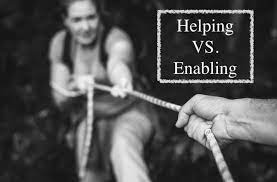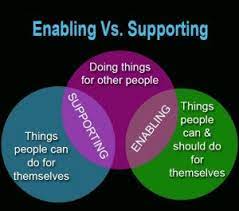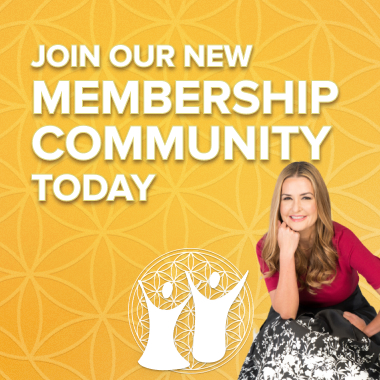
Original content by Ashley Berges
What happens when we are enabling our friends, family, or significant other instead of helping them? Most of us want to help the people we care about in our lives. Often, we may not realize that we are enabling instead of helping.
Let’s look at 11 indications that identify when we are enabling rather than helping
1. Do things for others that they can do for themselves
Often, we are doing everyday tasks for someone who should be able to do them on their own. We are taking things away from them that they can do on their own. Additionally, we take away some of their identity by doing these tasks for them.
2. We lie or make excuses for them
We do this to cover up their unhealthy behaviors or poor life choices. Instead of pointing out these things or talking to them, we make excuses because we don’t want to deal with them or their issues.
3. We deny the problem
Instead of seeing the actions that are taking place, much like excuses, we deny that they are occurring. As a result, this denial makes resolving or finding a solution to the problem more difficult.
4. We minimize the issue

When we minimize, we make the actual problem seem much smaller than it is. We make it out to be no big deal. No matter the size, these issues should be discussed. Consequently, not discussing the actual issue only enables the other person rather than helping them.
5. We put the person ahead of ourselves
Many of us put others ahead of ourselves all the time. We put the other person ahead of us causing us to put our priorities and responsibilities on the back burner. This ultimately leads to resentment down the line. We do this because consciously or subconsciously we feel that the other person is more important than we are.
6. We feel guilty not helping them
It is almost as though we feel guilty for not enabling them. We have been doing things for them for so long, it has become a pattern in our lives. We feel guilty about not helping and turn it in on ourselves. This is a major indication that we are enabling rather than helping.
7. We feel responsible for their lives
Feeling responsible is a big red flag. We are only responsible for our own lives and our children to an extent. It is important to remember that our children are also responsible for their own lives. When we feel responsible, we get in the way of others living their own lives. Ultimately, we end ups doing things for other people that we do not need to be doing.

8. We feel responsible for their problems
We need to look at why we feel responsible for other people’s problems. This can be a very co-dependent way of thinking. This outlook gets us into the enabling pattern. As a result, we feel responsible and feel the need to do something to change the situation. Hence, we begin to take responsibility for things that the other person needs to be responsible for.
9. We feel resentment towards this person
Resentment builds because we are doing so many things for the other person to help and support them. Whether it is financial, mental, or emotional support. It is draining when we are supporting someone in all these ways but they are unable to give back to us in any way. This causes resentment to build up.
10. We feel sorry for them
We feel sorry for what they are going through. Instead of allowing them to take responsibility, we allow them to feel sorry for themselves. As a result, we try to help them feel better. We are taking away the responsibility that they must make changes in their lives.
11. We are afraid of what they will do
There is a fear of them getting into trouble, falling, and hitting rock bottom. It can happen for numerous reasons; it does not have to be because of drugs or alcohol. We find ourselves doing things for them because we are afraid of what might happen to them if we do not. Furthermore, we end up feeling like we are walking on eggshells because we want everything to be ok for this person and do not want to upset them. It is like we are trying to control their actions when we know we can’t control anyone’s actions. We can give advice, listen, help, encourage, and motivate, but we cannot control another person’s actions or thoughts.
If any of these 11 indications hit home with you, most likely you are enabling instead of helping. When we enable someone, we are getting in the way of what they need to be doing for themselves. It is important to be able to identify when we are enabling and make the changes needed to move forward healthily.
Watch the complete YouTube video below to learn more







